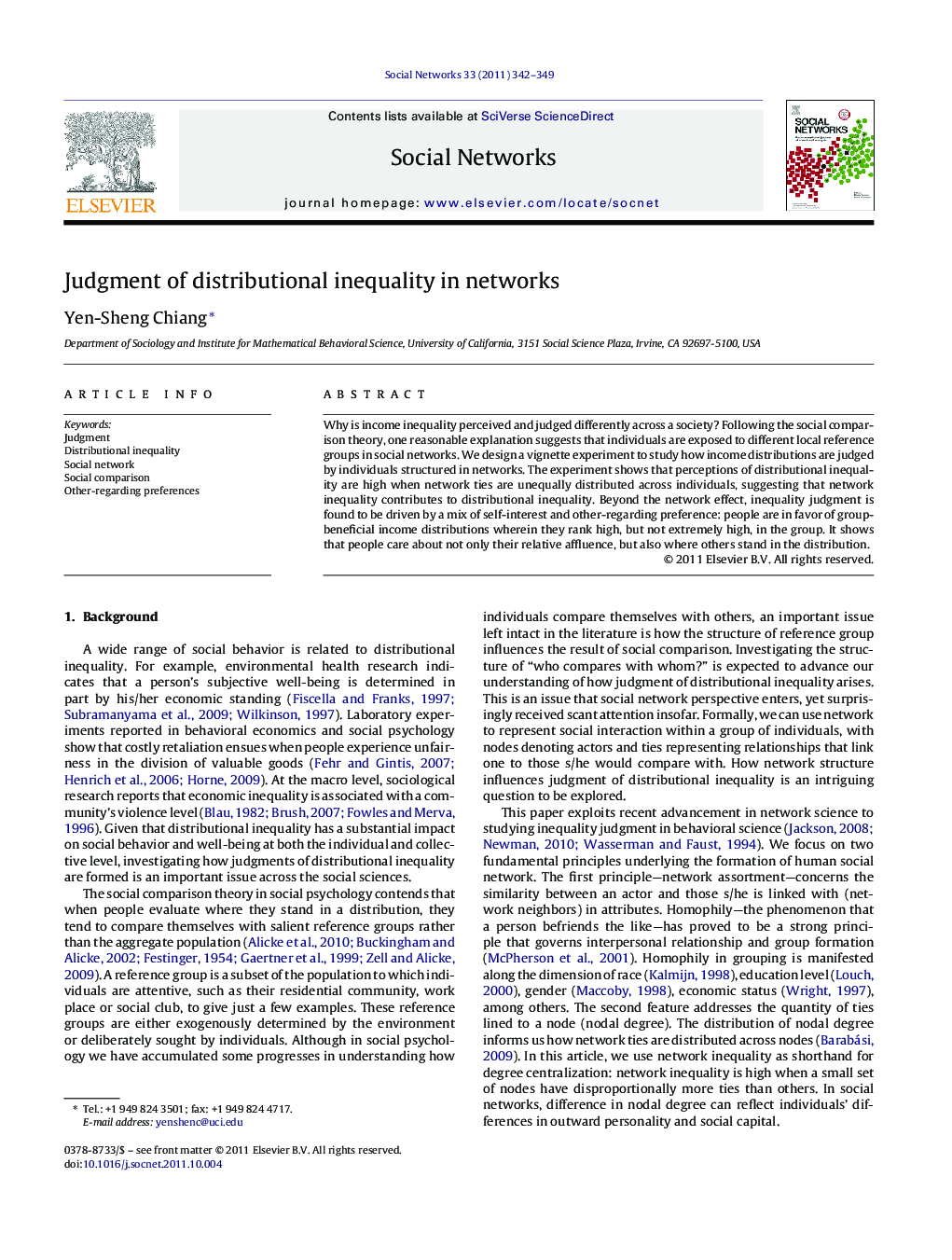| کد مقاله | کد نشریه | سال انتشار | مقاله انگلیسی | نسخه تمام متن |
|---|---|---|---|---|
| 1129359 | 955247 | 2011 | 8 صفحه PDF | دانلود رایگان |

Why is income inequality perceived and judged differently across a society? Following the social comparison theory, one reasonable explanation suggests that individuals are exposed to different local reference groups in social networks. We design a vignette experiment to study how income distributions are judged by individuals structured in networks. The experiment shows that perceptions of distributional inequality are high when network ties are unequally distributed across individuals, suggesting that network inequality contributes to distributional inequality. Beyond the network effect, inequality judgment is found to be driven by a mix of self-interest and other-regarding preference: people are in favor of group-beneficial income distributions wherein they rank high, but not extremely high, in the group. It shows that people care about not only their relative affluence, but also where others stand in the distribution.
► Judgment of distributional inequality is higher in heterophilously assorted networks.
► Judgment of distributional inequality is higher in networks where nodal degrees are unevenly distributed.
► A person's relative income status strongly determines his/her judgment of distributional inequality.
► Beyond self-interest, an individual's judgment of distributional inequality is concerned with others’ welfare in the distribution.
Journal: Social Networks - Volume 33, Issue 4, October 2011, Pages 342–349